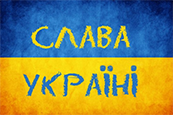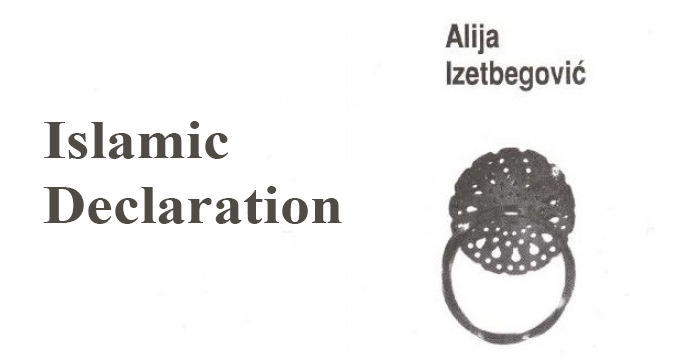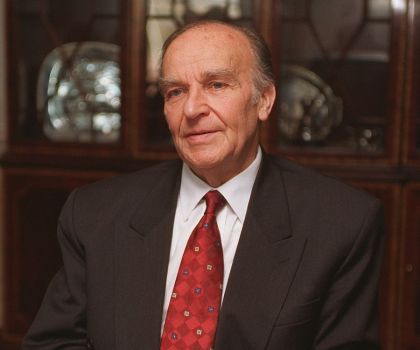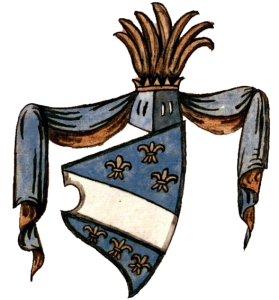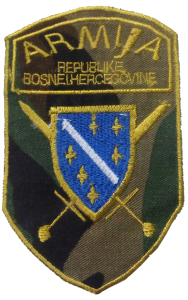The September 11th attacks on the United States in 2001 have truly had an impact on how people would view the future, but they also had an impact on how people were to view the past. Numerous experts and quasi-experts have since flooded all forms of media, speaking about the suddenly ever-present Islamic threat. They pinpointed places where radicalism did in fact exist or at least where there was substantial evidence that it existed, but they also pointed to places where it had never existed before. One such case is Bosnia-Herzegovina and the re-interpretation of the recent war. In recent years, there have been a number of different books on the alleged presence of Al-Qaeda and its role in the war in Bosnia-Herzegovina, some authors even going so far as to claim a connection between the late President of Bosnia-Herzegovina Alija Izetbegovic and his government and Osama Bin Laden, head of Al-Qaeda.[1]
Almost all the books somewhere within their text referred to Alija Izetbegovic and his now {m)iamous Islamic Declaration, a booklet written in 1970 and often taken as Izetbegovic's 'blueprint' or 'platform' for the establishment of an Islamic state in Bosnia-Herzegovina. Yet these recent 'discoveries' by mostly Western authors are terribly reminiscent of the early 1990s propaganda by such accused war criminals as Radovan Karadzic and the late Slobodan Milosevic. Fears of an Islamic threat from the Bosniaks were played upon by both Milosevic- ".. .we are not trying to create an Islamic state like the Muslims in Bosnia" and Karadzic followed along similar lines when he said "Croats are fascists and Muslims are Islamic fanatics." [2] (emphasis mine)
Alija Izetbegović
How has it come about that barely ten years after the end of the war, during which Alija Izetbegovic enjoyed worldwide support, and during which the United States militarily intervened to help the besieged Bosnian government by bombing Serb positions in 1995, that now this very Bosnian government is retrospectively accused of being Islamist-oriented by some, or even of having links with Al-Qaeda?
To say that the United Stated did not know who it was dealing with during the 1992-1995 war period would be an insulting underestimation of U.S. capabilities. But, to say that Serbian anti Muslim propaganda has been significantly aided by the September 11th attacks is more likely to make sense. After all, all one ought to do is to look back at some newspaper articles and TV clips that were filmed during the late 1980s and early 1990s to be able to draw a clear parallel between the anti-Muslim propaganda of the Serbian nationalists and the post September 11th re-interpretation of the war by some ill-informed or malicious authors. In fact, anti-Muslim and anti-Turkish (Bosnian Muslims are often derogatorily referred to as Turks by Serbian nationalists) literature has been circulating since the late 19th century throughout the region. Njegos's Mountain Wreath, Cvijic's Dinaric Man, and Draskovic's Noz are just a few examples needed to get a sense of the extent of this anti-Muslim sentiment.
Not only did novelists reinforce anti-Muslim propaganda, so did politicians. Dobrica Cosic, Serbia's leading intellectual and one time President of Yugoslavia warned of the 'pan-Islamic internationalization of war in Bosnia' and Milosevic did the same by depicting Serbia as the little David against the Islamic 'Goliath'.[3] Radovan Karadzic also claimed that the war he was fighting was to ensure that Islamic fundamentalism did not "infect Europe from the south".[4] He also claimed, much like the earlier mentioned experts, that Saudi Arabia, Iran, and Turkey were using Bosnia as a "springboard for the Islamic penetration of Europe."[5]
Seeing these uncomforting similarities in the accusations of some biased authors and Serbian nationalists leaders who stand responsible of committing genocide[6] against the Bosnian Muslims in areas of Bosnia-Herzegovina today known as the 'Serb Republic' (Republika Srpska), there seems to be a need to clarify several points about the early state development of BosniaHerzegovina and the policies of its first democratically elected President, the late Alija Izetbegovic.
Knowing that the Dayton peace accords signed in the fall of 1995 sealed the fate of BosniaHerzegovina and saved it from further deteriorating change, this paper will focus only on the developments that occurred in Bosnia-Herzegovina while changes in the state structure and its institutions were still possible, i.e. during the war period. After the Dayton agreement was signed and with the strong presence of what is commonly known as the international community, only positive reforms strengthening the central government could be and were carried out. No other changes to the secular nature of the state, judiciary or army could be done.
The Islamic Declaration
The Islamic Declaration, written by Alija Izetbegovic in 1970, did not catch the attention of many. It was circulated mainly around his close circle of friends and was only published in 1990.[7] The author was an average lawyer dealing mainly with corporate law and not a well known or influential personality. A careful reading of the book in its original language exposes his disappointment with what is commonly known as the Muslim world. He is a man who is disappointed by the effects of colonialism on the Muslim world, of how this land of rich natural resources is being exploited by foreign governments and by their puppet regimes.[8] Izetbegovic seems concerned apparently with the effects of atheism as a result of communist rule and its impact on morality and the spiritual development of an individual. Speaking about the Muslim youth, he states:
without an Islamic upbringing and without a spiritual and moral bond with the people, they convince themselves that by destroying internal understandings, customs and convictions, and introducing foreign ones, that they will overnight create America.[9]
He also states that Islamic upbringing is essential to fight the ills of today's society, such as alcoholism, prostitution, pornography, gambling.[10] His reference to the need for Islamic upbringing is commonly stressed by many Muslim authorities today and it refers to the education (usually home based) of children by their parents, according to Islamic ethical and moral standards as well as discipline and piety.
In another section he criticizes 'westerners' and 'modernists'. This also needs some clarification because further in the text, he clearly defines who he considers a 'westerner' and a 'modernist' - he primarily refers to leaders of Muslim countries who think that they can transform and modernize their societies overnight by introducing cosmetic reforms, without tackling the real problems of society,giving the examplee of Ataturk and Habib Bourgiba. He goes on to state that 'revolutionary' ideas which are meant to be 'remedies for all' are shortsighted and that cosmetic changes in the Muslim world, such as Ataturk's banning of the Fes (a cap worn by Muslims) and his abolition of the Arabic script did not solve the problems of modern Turkey. Turkey was still a third world country in 1970. Another such example Izetbegovic mentions is Tunisia's long time President Habib Bourgiba who:
wears a European suit, speaks French at home, isolates Tunisia not only from the Islamic but from the Arab world as well, limits religious freedom, calls for the abandonment of fasting during the holy month of Ramadan because 'fasting decreases work productivity' and he personally drinks orange juice in public to set an adequate example.[11]
Izetbegovic criticized these very leaders who had abandoned their people, who did not bring the necessary changes to their societies. He pointed out four key points that marked the Muslim world then, some of which one can openly say, are still very much in place today. These are, first: "We are enslaved" and notes that at one point in 1919, there was not a single independent Muslim state in the world. Second: "We are not enlightened" and points out that in not one single Muslim country between the two world wars were literary rates higher than 50%. Some had horribly high illiteracy rates such as 80% and 90%.[12] Third: "We are poor" and shows that the national income per citizen is staggeringly low in comparison to the United States. Finally, he concludes 'we are a divided community' and points out the huge gaps between the rich and poor in many Muslim states, and says that such discrepancies in wealth are not allowed in the Qur'an.[13] He even goes on to criticize imams and sheiks ('hodze i sejhovi') who have according to him, formed a 'special class' and who have monopolized the interpretation of Islam. He criticized them for having created, out of interpreting religion, a very "comfortable and profitable" profession.[14]
One part of the Islamic Declaration commonly cited as 'proof of Izetbegovic's aim to create a theocracy is when he says that 'there can be no co-existence between the 'Islamic creed' and nonIslamic systems'.[15] He elaborates that the many military coups and frequent changes of government in Muslim countries is evidence that an imposed secularist government or a government which is openly un-Islamic will always be prone to violent changes and will be rejected by its Muslim citizens. Here he seems to be referring to what David Chandler calls 'phantom states' - that is, states which exist in structure but lack the political and legal legitimacy of the people.[16] Izetbegovic seems to have been right in his assessment because a recent study by Carnegie Endowment clearly shows that Islamist parties have steadily been gaining momentum in the Middle East and that the secular and widely authoritarian governments from Morocco to Egypt are facing serious challenges from their citizens.[17]
What Izetbegovic seems to have meant by saying that there can be no 'co-existence' between Islam and un-Islamic rule is that if the majority of the population in Muslim countries are believers and if they accept the overall role of Islam in their life, then it is likely that these people will always reject any form of government that is obviously at odds with Islamic teachings. This by itself was his mere assessment of the situation in the Arab World, and not at all a call for an Islamic revolution in Yugoslavia.
When is comes to speaking about unity and brotherhood, there is another paragraph that is regularly cited and needs some clarification. In the beginning of the book, he calls for the "establishment of a united Islamic community from Morocco to Indonesia".[18] However, the word 'zajednica' in Bosnian or 'community' in English should not be taken for granted to be a territoriallyconnected community. Almost always in the Islamic terminology the words 'community' and 'ummah' are used to refer to all the Muslims of the world as one, as a spiritually united community.
In another case Izetbegovic does refer to a territorially based community - "Islamic federation from Morocco to Indonesia, from tropical Africa to Central Asia."[19] This controversial paragraph needs to be viewed from a broader perspective; hence for the sake of clarity I will translate the entire paragraph so that the reader may understand it within its intended context:
In one of the theses for today's Islamic system we have mentioned that the natural function of the Islamic system is the desire to gather all Muslims and Muslim communities in the world. In today's circumstances this desire means struggling to create a big Islamic Federation from Morocco to Indonesia, from tropical Africa to Central Asia.[20]
In this case it is obvious that he personally does not call for the establishment of such an Islamic federation, rather he talks about the theoretical framework that existed at that time throughout the Muslim world. In fact, throughout the entire book it is apparent that he speaks about the Islamic community and the Islamic federation from a Utopist and theoretical perspective. Not once did he mention that Yugoslavia or the Muslim minorities in the Balkans should be part of this Islamic Federation. In fact, he clearly stated that an Islamic system can only be established in countries where Muslims are an overwhelming majority.[21] It is more than obvious that Muslims in Yugoslavia were a mere minority throughout the life of Socialist Yugoslavia, and even with the breakup of Yugoslavia and the independence of Bosnia-Herzegovina, Muslims only constituted 40% of it.[22] He stresses the importance of having a Muslim majority in order to establish an Islamic system because without this majority, it might simply lead to the development of negative consequences for the state.[23] Hence Muslim minorities in non-Muslim countries, as was the case of Muslims in Yugoslavia, according to Izetbegovic, had to:
Under the condition of guaranteed religious freedoms and normal life, be loyal and carry out all their duties towards that community...[24]
Yugoslavia allowed limited religious freedoms in comparison to other communist countries, and continued to have functioning mosques and madrassas (Islamic high schools) and even an Islamic Theological Faculty, opened in 1977.[25]
Hence after carefully reading the Islamic Declaration, there seems to be a limited amount of condemning evidence or inflammatory Islamist rhetoric that could be used as credible proof that Izetbegovic wanted to establish an Islamic State. Aside from this, one should bear in mind that the text was written and distributed in 1970, yet Izetbegovic was only arrested in 1983. Why did the much feared Yugoslav intelligence agency, UDBA, wait 13 year to arrest Izetbegovic?
In fact, the reasons why the Muslim intellectuals were arrested after being accused of counter-revolutionary activity, enemy activity, spreading enemy propaganda, spreading ethnic hatred were all dropped in 1985 by the Federal Court, and so the only law that was used in the end to jail them was the law against 'verbal crime' - an ambiguous and wide-ranging measure used throughout the communist world to jail whoever the government wanted and for whatever reason.[26] It should also be kept in mind that during the early 1980s, the communist government also jailed many Albanians in Kosovo, but also Croat members of MASPOK, and Slovenian members of Mladina.[27] As Mustafa Spahic, one of 12 intellectuals jailed in 1983 notes, this was part of a wide range of measures taken by the communist government against the growing dissidence among intellectuals and activists of all nationalities and religions in Yugoslavia and against increasing dissatisfaction with the communist regime.[28]
The War Years
Even if it could be assumed that Izetbegovic did want an Islamic State in Bosnia- Herzegovina, he could have created it only after the collapse of communism and during the messy war years, not later, for once the Dayton Accords were signed, no further changes could be made. We will now analyze the war years and see if there is any evidence of attempts to establish Islamic rule.
Alija Izetbegovic, with the help of some colleagues, founded the SD A (Party for Democratic Action) in 1990.[29] At its inaugural meeting on 27th March 1990 the founding declaration of the SDA stated that "The Party of Democratic Action is a political Alliance of citizens of Yugoslavia who belong to the Muslim cultural-historical sphere, as well as other citizens of Yugoslavia who accept the program and goals of the party."[30] It also called for "the maintenance of Yugoslavia as a free union of peoples, in other words a federal state in its present federal borders" and also stressed its interest in "the maintenance of Bosnia-Herzegovina as the common state of Muslim, Serbs, and Croats."[31]
By June 1991 as the political situation was gradually spiraling out of control, Izetbegovic presided over a meeting of 356 influential Muslim political, cultural, and humanitarian figures who issued a 'Proclamation' that it was the wish of all Yugoslavia's Muslims for a unified Bosnian Citizens republic with full equality for all nationalities."[32]
By the time the war broke out, when Serb bombardment of Sarajevo had begun and Serb ethnic cleansing of Eastern Bosnian Muslims was already underway, Izetbegovic appointed a cabinet consisted of 16 ministerial positions, only 7 were held by Muslims.[33]This was in accordance with the ethnic composition of pre-war Bosnia, also known as the 'ethnic key'. In fact, what can only be surprising is that key posts in war time, such as the Ministry of Defense went to a nonMuslim, Jerko Doko, while other less important posts in wartime such as the Ministry of Forestry and the Ministry of Urbanism went to Muslims.[34] Even the joint Presidency of the Government was held in accordance with the 'ethnic key' system by a Muslim, a Serb and a Croat.[35]
Other important positions such as the State Prosecutor were awarded to Zdravko Knezevic, a Croat, and the Director of the International Press Center - an important function for the dissemination of information especially during wartime - went to Goran Milic, also a Croat.[36] The same was the case with the powerful Ministry of Interior, which had probably the best armed fighters in besieged Sarajevo, its under-secretary was Jozo Jozic, a Croat, and other important positions such as the assistant to the Minister of the Interior went to Petar Pétrie and Zoran Milanovic, both Croats.[37] Two key posts for the defense of Sarajevo went to Serbs: Jovan Divjak,[38] who became the deputy head of the Territorial Defense of the Republic of Bosnia-Herzegovina, and Dragan Vikic, Commander of the Ministry of Interior's Special Forces.[39]
The insignia of the Army and the symbols that they used showed no Islamic signs at all. Members of the armed forces were assigned, by Presidential decree, to wear the coat of arms of the medieval Bosnia King Tvrtko I (a blue shield with six fleur-de-lis) which - on a white background - became the flag of the Republic of Bosnia-Herzegovina.[40]
Coat of arms of the medieval Bosnia during the reign of King Stephen Tvrtko I
Army of the Republic of Bosnia and Herzegovina coat of arms
The "Law of the Armed Forces of the Republic of Bosnia-Herzegovina" published on 20th May 1992 defined the Army as "the common armed forces of all citizen nations of the Republic Muslims, Serbs, and Croats and members of other nations and nationalities who live in it" and even the three military emblems which were printed in 1992 each represented three historical figures: King Tomislav for the Croats, 'Dragon of Bosnia' Husein Kapetan Gradascevic, and Radomir Putnik for the Serbs.[41]
Even the oath of the Army of the Republic of Bosnia-Herzegovina did not show signs of any Islamic inclination, but clearly stated:
I pledge to defend the independence, sovereignty and unity of the Republic of Bosnia-Herzegovina; that I shall in a conscientious and disciplined manner carry out all the tasks and duties of a member of the Army of the Republic of BosniaHerzegovina; and that I shall defend its freedom and honor and be steadfast in that struggle.[42]
An analysis of the Official Gazettes during the period of 1992-1995 shows absolutely no laws which could be deemed Islamic nor any that had a negative impact on Bosnia's Croat and Serb population on the territory which was under the government in Sarajevo. Churches were untouched on these territories and Serb and Croat fighters in larger cities such as Sarajevo and Tuzla fought alongside Bosnian Muslim fighters against the Army of the Serb Republic.
Perhaps the closest Bosnia-Herzegovina ever came to becoming a homogeneous Muslim country was in 1993 during the 'Vance-Oven Peace Plan' (VOPP) which was coined by the international community. The VOPP proposed the division of Bosnia-Herzegovina into 10 prospective cantons divided among the Muslims, Serbs, and Croats.[43] Karadzic however, refused to sign the VOPP and thus the fighting continued.[44]
The second occasion that brought Bosnia-Herzegovina close to becoming a homogeneous Muslim state was in autumn of 1993 when Bosnia-Herzegovina was at its lowest point, when partition seemed inevitable. For this purpose the Bosniak Assembly comprising of prominent Muslim intellectuals and influential personalities convened on the 27* September 1993 to vote on the Owen-Stoltenberg Plan, which would have effectively chipped off two-thirds of BosniaHerzegovina to neighboring Serbia and Croatia, thereby enabling them to create their respective 'Greater Serbia' and 'Greater Croatia'.[45] The Bosniak Assembly rejected this plan, and henceforth what followed was the formation of the Muslim-Croat Federation[46] in 1994 which sealed the fate of Bosnian Muslims and Bosnian Croats in a Federation which is still intact.
Yes it can be argued that from 1994 to 1995 theBosnian Army increasingly inclined towards a reassertion of its Bosniak identity. This can be understood to be the result of a number of reasons. Firstly, by mid-1994 the Bosnian Serb forces controlled 70% of the territory of Bosnia, with the remaining 10% controlled by Croats and 20% by the still multi-ethnic Bosnian-Herzegovinian government.[47] At this point in time, the majority of Bosnian Muslims were encircled, their fate uncertain. They could only fear the worst. By then the tactics of the Serb forces were already well known: killings, rapes, looting, torture, expulsions.[48] It is somewhat understandable that the Bosnian Muslims turned to religion in their darkest moment. This was manifested by an increase in religiosity as well as in the use of Islamic insignia in some brigades of the army. Following these hard months, a reorganization and reform of the army took place, and within a short period of time the Bosnian Army made some spectacular advances and started regaining previously lost territory.[49]
Towards the end of 1994 and in early 1995 Bosnian Muslims became more aware of their Bosniak identity and felt increasing pride in their Army which was making some noticeable gains on the battlefield, but which by then, as a result of some defections to the Croatian and Serbian side, was largely made up of Bosniaks, but still as committed as before to a multi-ethnic Bosnia Herzegovina. [50]
Conclusion
The Islamic Declaration is not a platform for an Islamic State. It deals with a wide range of topics, most of which are of genuine concern to the Muslim world. It is a theoretical and Utopian piece of work which the author through his work as President never showed signs of implementing.
After the fall of communism, the 1983 show trial of the Muslim intellectuals, including Izetbegovic, turned out to be a set-up in order to silence the growing opposition to communist rule. Witnesses confessed to being forced, after days of non-stop interrogations and sometimes even at gunpoint, to sign confessions which were used as court evidence and later had to be memorized and repeated in court.
The Bosnian Muslim intellectuals as a whole were a minority, and could by no means spur a social movement even if they wanted to.[51] Many of them who later made up the SDA realized that if they wanted votes in a democratic country such as Bosnia-Herzegovina was and wanted to be, they needed to win over the highly-secularized and educated middle class.[52] Speaking about the failure of Islamism in Bosnia-Herzegovina, Gilles Kepel notes:
The main cause was the emergence, in ordinary society, of a democratic attitude towards religion, which in many ways resembled the post-Islamist logic that has been gaining ground since the 1990s in other Muslim societies.[53]
Another personality well acquainted with the Yugoslav region, Donald Bruce MacDonald, has drawn similar conclusions and ascribed the failure of some pro-Islamic reforms in Bosnia Herzegovina to the nature of the Bosnian-Herzegovinian Muslims.[54] He even points out an event when Izetbegovic referred to a dead soldier using the Arabic term shehid ('martyr'), it resulted in a backlash from the dead soldier's family because they did not want their son to be referred to by using an Arabic word.
Duririg the war even though the arniy may have been showifig signs of reasserting its Islamic and Bosniak identity in 1994/95, it was indeed a short lived honeymoon that ended with the Dayton Peace Accords. It resulted in the dismemberment of the Army and the creation of a new 'Dayton' army and a 'Dayton' state. As for the possibility of having an homogenous Muslim state, it seems somewhat ironic that the two times that Bosnia-Herzegovina came closest to becoming an ethnically homogenous Muslim state, with thus a theoretical possibility for implementing an Islamic system, was as a result of Western intervention and pressure.
So then, if it is apparent that there was no intention by the government toward implementing any form of Islamic rule, and if there could be no support for such a rule from the highly secularized Bosnian Muslims, the question that arises is: Why did Serb and Croat propaganda depict Bosnian Muslims as Islamic fanatics?
The answer given by David Bruce MacDonald is enlightening: in both cases the Croats and Serbs used "the myths of assimilation and Islamic conspiracy to sanction the ethnic cleansing and mass destructions that so characterized the Bosnian war."[55]
Depicting the Bosnian Muslims as Turks and as Islamic fanatics, Serb nationalist leaders could easily spur emotions among the Serbian masses, reminding them of the Ottoman rule which they depict so negatively, and encourage the bewildered masses to carry out the most heinous crimes against their neighbors. Once again, coming back to my introductory remarks, the 11th September really did provided a golden opportunity for Serbian nationalists to retrospectively depict their genocide and ethnic cleansing of the Bosnian Muslims as a 'war on terror'.
Harun Karčić
Alija Izetbegovic and the myth of the Islamic State: Separating fact from fiction
Religion in Eastern Europe XXIX, 4 November 2009)
References:
1. Such books Include Al-Qaeda's jihad in Europe by Evan Kohlnnann, Al-Qaeda in Bosnia-Herzegovina by Vlado Anzilovic, Unholy Terror by John R. Schindler, T¡ie Coming Balkan Caliphate by Christopher Deliso, Islamic Terror and the Balkans by Shaul Shay and Garibi by Esad Hecimovic.
2. For the whole text, see Warren Zimmerman "The Last Ambassador: A Memoir of the Collapse of Yugoslavia." Foreign Affairs, March/April 1995.
3. See David Bruce MacDonald, Balkan Holocausts?:Serbian and Croatian Victim Centered Propaganda and the war in Yugoslavia. Manchaster University Press, 2002. p.234.
4. Ibid.
5. Ibid. 6. For a detailed study of the genocide against the Bosnian Muslims, see Norman Cigar Genocide in Bosnia and also This Time We Knew ed. by Thomas Kushman and Stjepan G. Mestrovic. Also, for a court verdict on genocide in Srebrenica, see Krstic Case in the ICTY http://www.icty.org/x/cases/krstic/ds/en/cis_krstic.pdf
7. Marko Attila Hoare mentions that it was 'eventually published' in 1990. See more in How Bosnia Armed. Saqi Books, 2004. p.26
8. See Alija Izetbegovic. Islamska Dekleracija. Mala Muslimanska Biblioteka, Sarajevo, 1990. p.2
9. Ibid, p.7
10. Ibid p.3O
11. Ibid. p.l7.
12. Ibid. p.l2
13. Ibid. p.l2
14. Ibid, p.6
15. Ibid, p.22
16. See David Chandler. Empire In Denial. Pluto Press, 2006. p
17. See Marina Ottaway and Amr Hamzawy. "Fighting on Two Fronts: Secular Parties in the Arab World". Carnegie Papers. Number 85, 2007.
18. Ibid p.3
19. Ibid p.46
20. Ibid
21. Ibid p.37
22. See Muslims in Europe: Country Guide at http://news.bbc.co.Uk/2/hi/europe/4385768.stm
23. Ibid p.37
24. Ibid p.38
25. For a detailed study of the Islamic revival in Yugoslavia, see Fikret Karcic. "Islamic Revival in the Balkans 1970- 1992," Islamic Studies 36:2, 3(1997)
26. Mustafa Spahic, 'Povijest i farsa - Sarajevski procès, 26 godina poslije', Oslobodenje, 23. Mart 2009.
27. Ibid.
28. Ibid.
29. Maid Hadziomeragic, Stranka Demokratske Akcije i stvarnost, Unikopis, Sarajevo, 1991, pp-75-77
30. Ibid.
31. Ibid.
32. Fikret Muslimovic, Odbrana Republike, NIPP Ljiljan, Sarajevo, 1995, p.2O6
33. Official Gazzete of the Republic of Bosnia and Herzegovina. 16 June 1992, No.6, p.224
34. Ibid.
35. Ibid.
36. Official Gazette. Republic of Bosnia and Herzegovina. June 1992 No:5, p.l86 and No:10, p.26O
37. Official Gazette. Republic of Bosnia and Herzegovina. July 1992 No:10, p.26O
38. Official Gazette. Republic of Bosnia and Herzegovina. April 1992 No: 2, p.lO7
39. Hoare 58
40. Sluzbeni list I Hoare 52
41. Hoare p.54
42. Official Gazette. Republic of Bosnia and Herzegovina. August 1992 No.ll, p287
43. Hoare p.85
44. Hoare p.86
45. Hoare p.98
46. http://www.usip.org/library/pa/bosnia/washagree_03011994_toc.html
47. Hoare p.111
48. See Human Rights Watch report at http://www.hrw.org/legacy/reports/1997A>osnia/Bosnia-02.htm
49. Hoare p.l22
50. Hoare p.lO4
51. Gilles Kepel. Jihad: The trial of political Islam. Belknap Press, 2002. p.244
52. Kepel p.252
53. Kepel p.251
54. MacDonald p.243
55. MacDonald p.241

